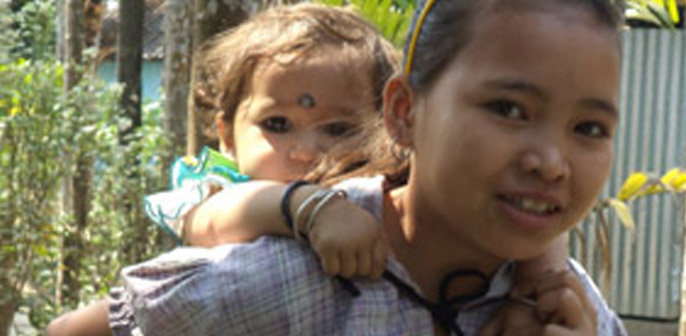+91 80 25586293
Projects
PROJECT DETAILS
ActionAid India works in 25 states and 1 union territory of India, with a vision to A world without poverty, patriarchy and injustice in which every person enjoys the right to life with dignity.
BUILDING PROCESS TO ENSURE THE RIGHTS OF TEA GARDEN LABOUR
since: 2012
-
- Name Of The Initiative
- Building Process to Ensure the Rights of Tea Garden Labour
-
- Allied Organisation
- GNESEP
-
- Working together since
- 2012
-
- States
- West Bengal
-
- Villages Reached
- 20
-
- Blocks Reached
- 2
-
- Districts Reached
- 1
-
- No Of Girls
- 15,924
-
- No Of Boys
- 10,000
-
- No Of People With Disability
- 564
-
- Families Indirectly Benefited
- 17,676
-
- Vulnerable Groups Reached
- Tribals, Dalit, Temporary and Regular Labour and migrants
-
- Focus Areas Of Intervention
- Empowering the communities to access their rights over land, water, forests and other commons; advocating for their participation in public welfare schemes; restoring rights of women and girls, and ensuring their safety; ensuring the rights of children, their education and protection; and advocating for providig them with equal socio-economic opportunities.
-
- Basic Information about the initiative
- During 2005 ヨ 2008, G-NESEP was a member of an anti-trafficking network to prevent cross border trafficking supported by ActionAid. Since 2010, it has initiated a work with tea garden labours in partnership with ActionAid and from the year 2012 it started implementing the LRP to ensure rights of tea garden labour under Indian Child Sponsorship support.The project is working in 20 sick and closed tea gardens situated in two administrative blocks namely Madarihat and Kalchini of Alipurduar District, West Bengal. The most of the tea gardens in these areas are almost 150 years old, but there are abysmal human sufferings due to frequent suspension of work, closer of garden for years together. The labours are suffering from severe employment crisis lead to starvation, hunger and different forms of human sufferings for them including their families and children. Building rights consciousness among the labourers creating pressure on local administration and garden management to address their immediate critical issues like food, employment, water, functioning of schools in the garden.
-
- KeyWords
- Tea garden; Tea garden labourers; Labourers; Children; Women; Rights
-
- Families Benefited
- 16,690
-
- Population Benefited
- 68,510
-
- Women Benefited
- 21,253
-
- Men Benefited
- 20,769
-
- Children Benefited
- 25,924




